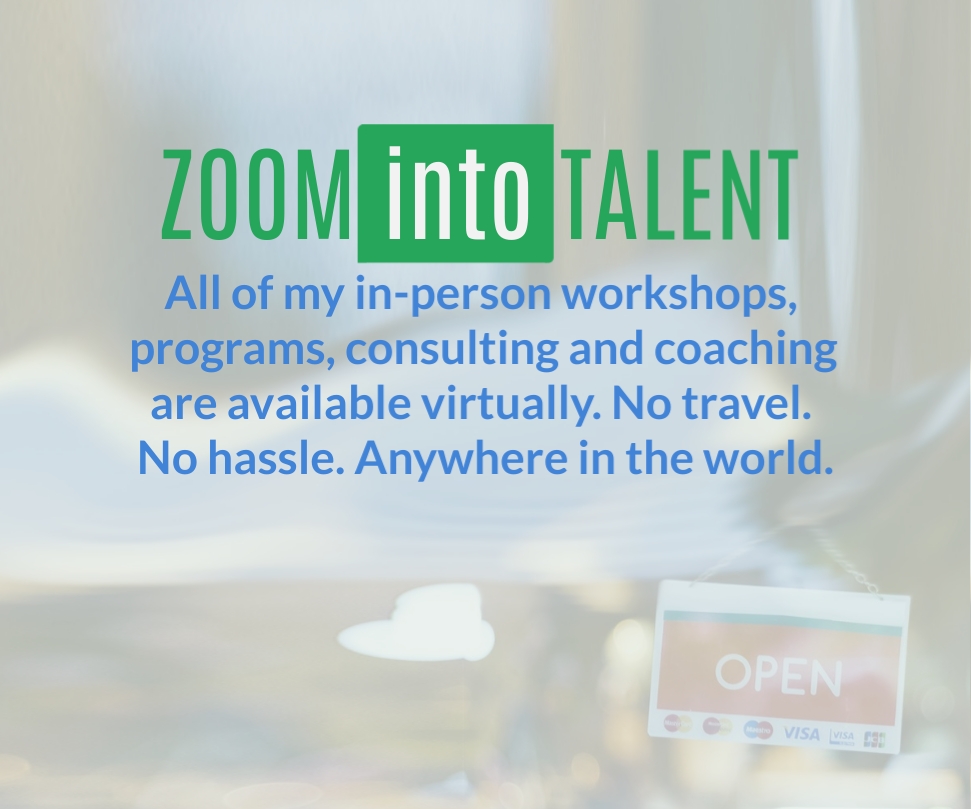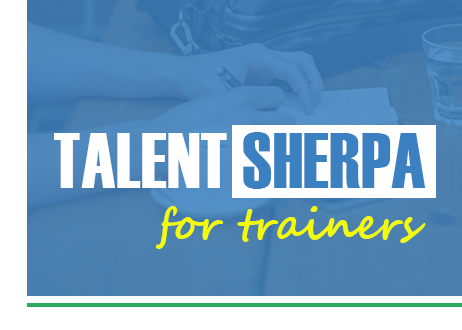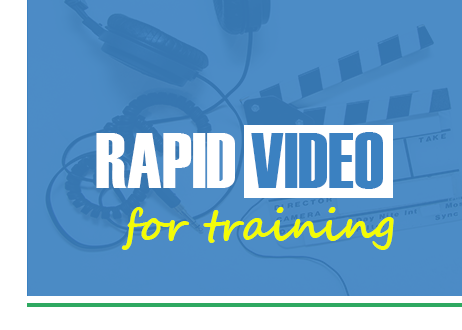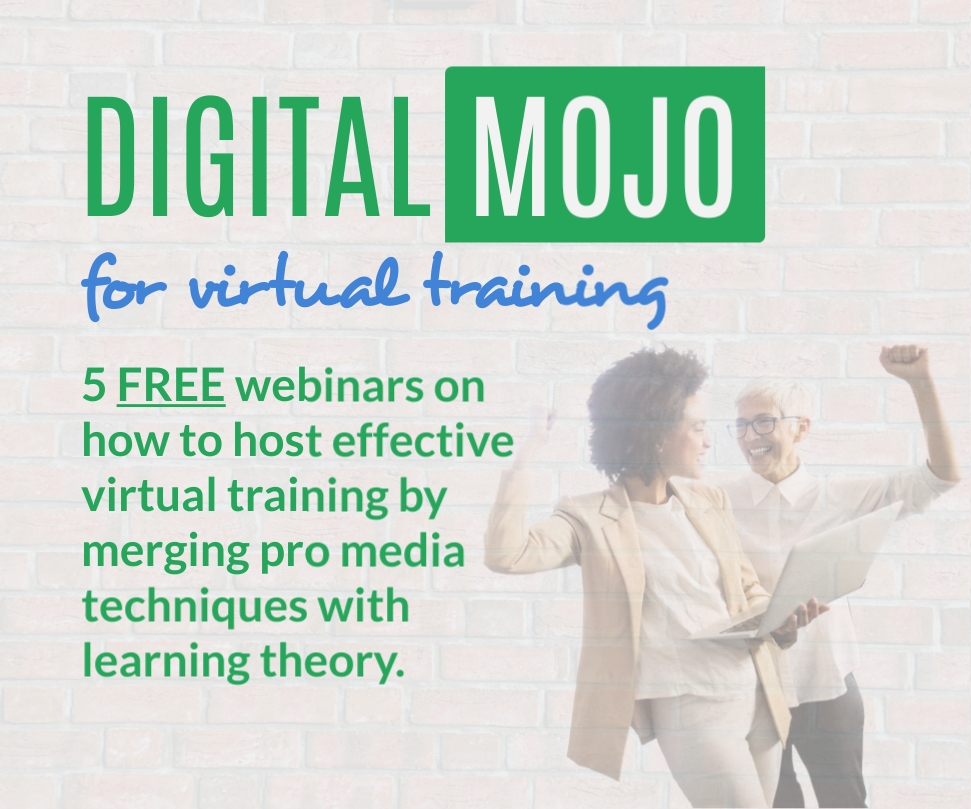Everything is Changing. Fast.
- Today’s workplace changes mean the role of the traditional trainers is radically shifting
- Tomorrow’s trainers need deep knowledge in 3 core areas to maintain credibility
- Tomorrow’s trainers need skills in 7 areas beyond the classroom to be successful
Experts have talked for years about how the trainer’s role will evolve in the next 3 to 8 years. I’m sure you’ve heard these conversations.
There’s a New Center of Gravity
No longer will training be classroom-centric but operational-centric. No longer will it be content-centric but performance-centric focused on organizational and project goals.
This is happening within a bigger shift from the industrial to postindustrial era. As the trendy folks call it, IR4.
It’s driving things like technology such as artificial intelligence and use of robots. And it’s behind terms we use in training such as just in time learning, and that annoying new buzzword, microlearning. (Annoying only because people today say microlearning is new but it’s been around forever.)
Key Drivers Are Forcing the Changes
Influences like the gig economy, generational working preferences, dispersed workforces and flexible needs are just some of the factors driving organizations to become more agile and prize innovation.
While some organizations are already moving in this direction, some further along the path than others, most are not.
However, that’s all changing. We’re no longer looking at that longer timeframe.
The COVID 19 pandemic just squished what many spoke of as a 3 to 8 year evolution into a 3 month revolution. And it’s being felt in the training department. Not just in how it is run but in terms of what the trainers will do.
Sorry, Training Can’t Stay the Way it Was
If you want your training department to survive and haven’t already started looking at what trainers do, their responsibilities and the skills they need, you’re going to feel the pressure to do so very soon.
An audit accountant will ask you how a 3-hour communication class increases sales?
An SVP who wants more budget for her division will question how your fancy LMS prevents workplace accidents?
And a COO looking at the quarterly results will want to know why we need an IT trainer when YouTube has plenty of “How To” videos?
The Answers Isn’t Slicker Training Sessions
We have very good answers to these very reasonable questions. Powerful answers, in fact. But they have nothing to do with the classroom and polished presentations. Content and slick slide decks.
They’re more closely related to business strategy and learning strategy. And the role we play not in necessarily delivering learning but in supporting and enabling skills development that shows better results in the workplace.
Learning leaders will need to engage in an education campaign around this because many non-trainers don’t understand this. They think success lies in slick slide decks and entertaining classroom experiences.
Many managers don’t understand this either and often describe good training as if it’s a compelling keynote. To be successful in the future we must educate these managers that training isn’t about the classroom but is about the workplace and their staff and having the resources to build their skills that lead to better quality, productivity and worker satisfaction.
Tomorrow’s Trainers
To be successful in the future, being good in a classroom is just a fraction of the skills they’ll need.
Talent professionals need to influence skills development and operation across the learning ecosystem, along the talent continuum, and at a time the business needs it.
Doesn’t sound like the kinds of skills you’ll learn on a train the trainer program. In fact, it’s going to evolve into a new role which will include much of what we’ve done but extend way beyond to new ares of influence.
Trainers Will Draw from 3 Knowledge Buckets
Trainers, talent professionals, or whatever we’ll call ourselves in the future need expertise in 3 areas core areas in addition to the core subject matter expertise they bring to their role.
- Organizational dynamics
- Science of learning & performance
- Professional skills
I call these the 3 Essential Knowledge Buckets for Talent Professionals.
Unless we know these areas inside out, the training and talent function in our organizations will quickly lose credibility. In fact, in many organizations it’s already happening.
Trainers Will Need New Skillsets
These knowledge buckets will inform a seven interdisciplinary skills that extend way beyond the classroom. They include:
- Coaches
- Business analysts
- Media creators and curators
- Instructional designers
- Talent Ambassadors
Trainers – On Top of the Game
Many trainers never get the chance to develop themselves in these areas.
One reason is that the story of training departments closely mirrors the old “Cobbler’s Children” fable. We tell everyone else they need training but fail to seek training for ourselves.
Another reason is that many trainers learned their craft in traditional train the trainer programs which focus more on platform skills, and things like controlling the room and writing legibly on flipcharts.
Do People Trust the Training Department?
This and other factors are leading to a crisis in many organizations. They are not trusting the training department. This can be seen in many ways.
For example, when you work on a big project, a division sends its people to exert excessive oversight. I’ve seen this manifest itself in extreme micromanagement to the extent subject matter experts (not instructional designers) tell trainers how to design PowerPoint slides and learning activities.
Another example is when they increasingly rely on members of their own teams to do informal coaching or min-training sessions. There is some value in this but there’s a tipping point where it causes issues.
Future Trainers are Sherpas
The good news is that all this can be fixed. As organizations morph into cultures than value agility and innovation, training and talent teams can be a big part of that transformation.
And the skills listed above can be learned. You’ll find these are the core elements of our Talent Sherpa Program. We have one for training professionals and another for managers who will in future organizations do much of the ‘just in time’ informal training.
I’d love to bring this to your organization either physically or virtually. It’s ready to go, just call me. Alternatively, you can design a program yourself. Download the infographic we have on the 21st Century Trainer for tips on what to focus on – I shared this as part of the Keynote I gave at ATD’s Core 4.
We Can’t Teach You Anything …
Back in the 1950s, psychotherapist Carl Rogers famously declared that he couldn’t teach anyone anything but he could help them learn. Today, with what we understand from neuroscience and cognitive psychology, he was spot on.
The notion we can teach or deliver information is quaint at best. Reckless at worse. Learning takes place on board the learner. We as trainers don’t do it for them. All we can do is help them.
When we become experts at helping them learn, they get the support they need to be agile and innovative in today’s world.
When we become experts at presentation, we do nothing to help them thrive.
The Answer Lies in the Sherpa Mindset
Sherpa in the Himalayas offer the perfect example of a wise trainer. Sherpas help mountaineers climb Mt Everest. They do the guiding, supporting and helping. But the mountaineer must still do the climbing.
Trainers must also do the guiding, supporting and helping. But we have to give space, freedom and motivation to the learners to do the learning.
CLICK HERE to learn more about my train the trainer program that is designed for the 21st Century where agility and innovation are core. I call it the Talent Sherpa Program and it’s all based on learning science.








